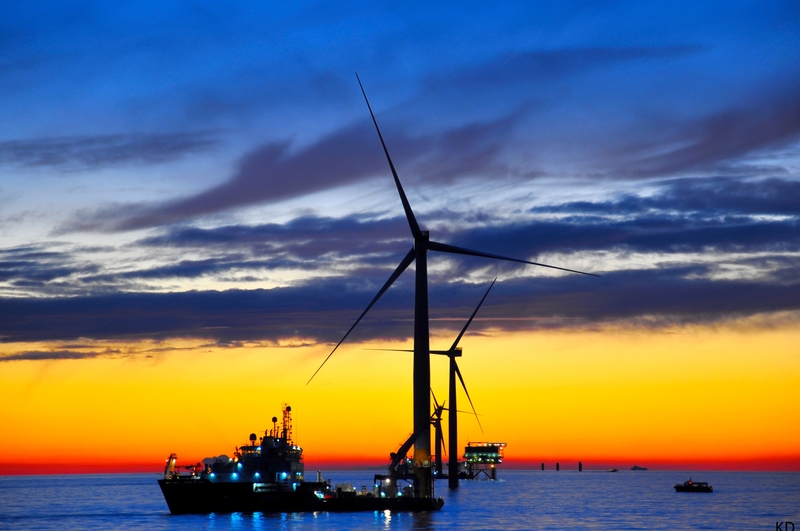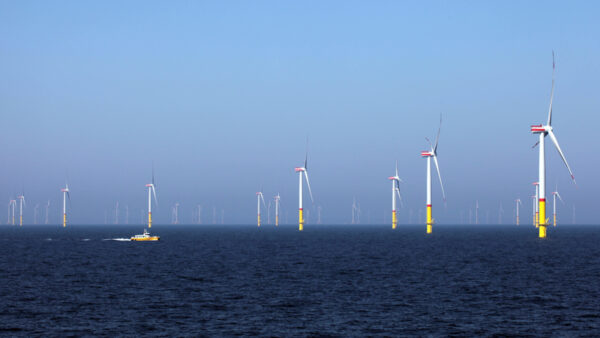
A judge in Washington, DC on Monday granted a preliminary injunction blocking the Trump administration’s stop-work order against the nearly complete, 704MW Revolution Wind scheme being built off the eastern US coast, allowing work on the project to resume immediately.
The wind farm’s co-developer, Denmark’s Ørsted, had been losing $15.7m a week since the US Bureau of Ocean Energy Management (BOEM) ordered a halt to the 80%-complete project on August 22nd, Reuters reports.
The Revolution Wind joint venture of Ørsted and a consortium led by Skyborn Renewables filed a suit against BOEM challenging the stop-work order in the US District Court for the District of Columbia on September 4th. The JV applied for the injunction on the same day.
Some $5bn worth of private investment has already gone into Revolution Wind, the DC court heard, reports Reuters.
The wind farm lies about 15 miles off the coast of Rhode Island and around 32 miles off Connecticut. Separately, those two states also jointly sued to overturn BOEM’s stop-work order in a Rhode Island court on September 4th (more below).
The Revolution Wind JV said contractors had already installed all the offshore foundations and 45 of the 65 planned turbines. Export cable installation was nearly complete, as was 90% of the onshore substation.
The wind farm is set to produce enough electricity to power 350,000 homes when it comes online next year. Work on it began in 2023 after developers secured all necessary approvals.
‘Arbitrary and capricious’
In his letter to Ørsted ordering work to stop, BOEM acting director Matthew Giacona justified the action by saying: “BOEM is seeking to address concerns related to the protection of national security interests of the United States and prevention of interference with reasonable uses of the exclusive economic zone, the high seas, and the territorial seas”.
Revolution Wind said BOEM lacked legal authority for the order and that its stated basis violated applicable law.
After Monday’s two-hour hearing, US District Judge Royce Lamberth, a Reagan appointee, said the Trump administration’s arguments for its stop-work order were contradictory, Reuters reports.
He also said the administration’s explanations – offered only weeks after BOEM’s letter on 22nd August – demonstrated “the height of arbitrary and capricious” government conduct.
The judge noted that Revolution Wind had relied on federal government assurances that were withdrawn without due process.
“If Revolution Wind cannot meet benchmark deadlines, the entire project could collapse,” Lamberth said, reports Reuters.
“There is no doubt in my mind of irreparable harm to the plaintiffs,” the judge added.
‘Major win for Connecticut families’
Although the injunction is temporary, Connecticut Attorney General William Tong called it “a major win for Connecticut workers and for Connecticut families who need this project on track now so it can start to drive down our unaffordable energy bills”.
On September 4th, the states of Connecticut and Rhode Island sued BOEM, its overseer the Department of the Interior, and their leaders in Rhode Island federal court.
They said BOEM’s order was not supported by statutory authority, lacked evidence, and did not identify any specific legal violations. Instead, it referenced only vague concerns rather than concrete risks to safety or clear breaches of law.
“The Trump Administration’s erratic action was the height of arbitrary and capricious, and failed to satisfy any statutory provisions needed to halt work on a fully approved and nearly complete project,” Tong said.
“It was not a close call. The Trump Administration should see the writing on the wall with this decision and drop its defence of their indefensible actions.
“Every day that this project is stymied is a day of lost employment, another day of unaffordable energy costs, and another day burning fossil fuels when American-made clean energy is within reach.”
- Subscribe here to get stories about construction around the world in your inbox three times a week






